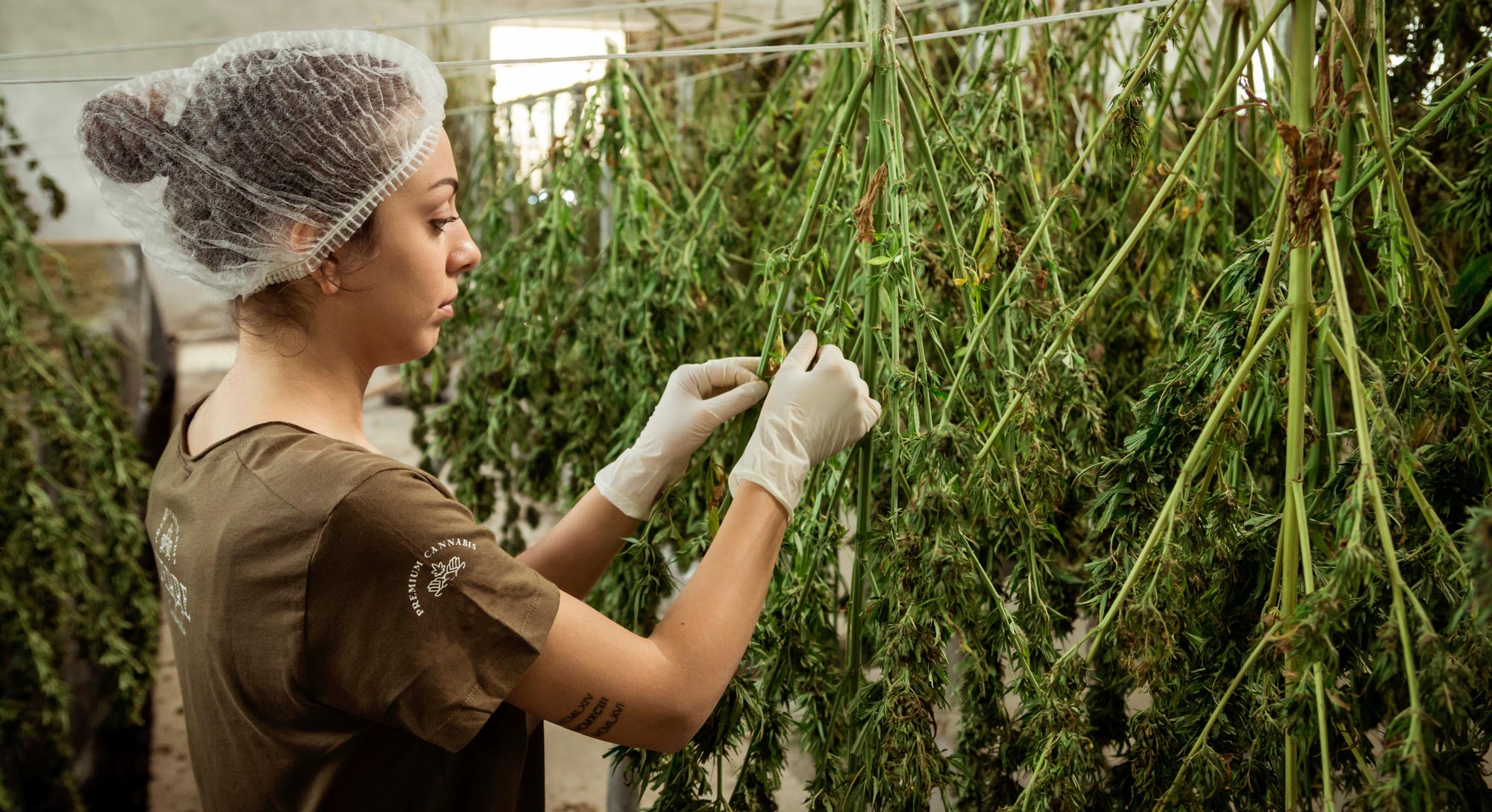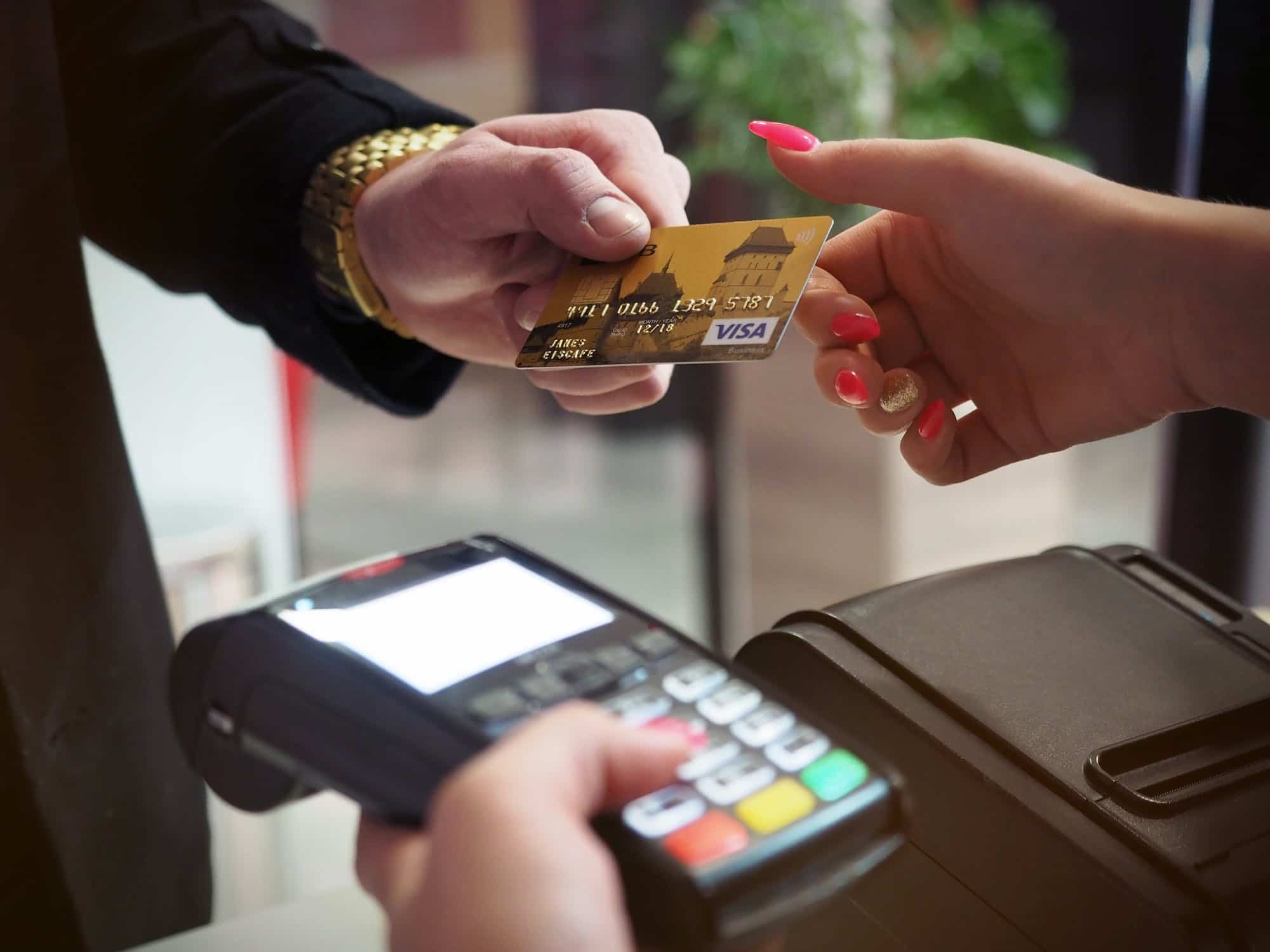The High Risk Merchants Guide to Credit Card Processing and E-commerce
- June 20, 2022
If you are new to high-risk merchant accounts, you will want to read this guide to high-risk merchant accounts for credit card processors and e-commerce. This guide covers everything you will want to know about payment processing, your payment gateway, chargebacks, and online credit card processing.
What Exactly Is a High-Risk Merchant Account?
A high-risk merchant account is a label your payment processor has given your business. Typical reasons for this label is that your account is considered to be at a higher risk of fraud, chargebacks, or a high number of returns. When your business has been labeled a high-risk merchant account, you will almost always pay higher processing fees to cover the costs associated with the higher risks your payment processor takes on with your account.
Global Legal Law Firm can help with litigation and transactional matters with various service providers across U.S. jurisdictions. If you’re a high volume merchant, Global can assist you negotiate better terms when contracting with a processor.
What Makes a Business High Risk?
Just because your business has been labeled high-risk doesn’t necessarily mean that your business is high-risk. For example, you might simply operate in a high-risk industry, meaning more businesses in your industry run a likelihood of fraud or chargebacks than other industries. If your business account has been labeled high-risk, you will be charged higher processing fees to offset your processors’ risks.
It may seem unfair to judge a business by its industry and charge higher processing fees if there is no proof of high-risk activity in the past. In this aspect, it is akin to automobile insurance. People who belong to particular groups, particularly age groups, are assessed as being higher-risk drivers and charged more expensive premiums to make up for the insurer’s increased risk in insuring drivers of certain ages. Businesses in certain industries are risk-assessed similarly, and processors charge additional fees to cover their risk.

High-Risk Business Categories
It is important to remember that processors are not making a moral judgment on your business by labeling it high-risk. High-risk businesses are not necessarily bad businesses. They are often quite profitable for everyone involved.
While processors can label a business as high-risk due to poor business practices, they often assign this categorization if your business one of the following four factors applies :
- Your industry. Risk assessors consider the processing history of other businesses in your vertical. They weigh how many refunds and chargebacks occur, how much fraud, and similar elements. If you are new to the industry, this can help them assess your baseline risk. Assessment by vertical is known as a merchant category and it is identified by your merchant category codes (MCCs)
- Your financials. The risk assessor will look at your financials to see how you have operated in your industry vertical or others. They will consider financial facets like your burn rate, debt to equity, and overall profitability. Considerations are similar to opening a business credit line; both you and your business are assessed.
- Your billing model. Risk assessors want to understand the types of transactions you are likely to be processing. Low-risk transactions are card-present transactions, while card-not-present (CNP) transactions carry a higher risk. Recurring billings, like subscriptions, are some of the highest-risk transactions. Annual recurring billings are of particular interest to risk assessors, as they could be held liable if you go out of business less than 12 months after selling an annual package.
Your processing volume. Risk assessors want to know how much processing your business will do. Processors may place your business on a sliding risk scale based on your number of annual transactions. A greater amount of transactions equates to a higher risk for the processor.
There are certain business industries or categories that are considered high-risk. These high-risk business and product categories include:
- Accommodations, travel, and ticketing agents
- Adult entertainment
- Cryptocurrencies
- Computer software and hardware
- E-cigarettes
- Magazines and similar subscriptions
- Online gambling, casinos, and gaming
- Online medication providers, drug stores, and pharmaceuticals
- Timeshares
- Telemarketing, calling cards, VOIP
Global Legal Can Help
Schedule a consultation today to learn how our team of legal experts can help your business get back on track.
What’s the Difference Between High-Risk Accounts and Regular Accounts?
The difference between regular accounts and high-risk accounts lies in risk identification. If the processor determines that your online business is at a high risk of receiving chargebacks or fraud accusations, your account will be classified as high-risk.
Many factors that make a risk assessor label your business as high-risk cannot be changed. You will be assessed higher processing fees, but high-risk accounts often come with more freedom and flexibility with your online sales.
While your industry is one factor in determining whether you are classified as high-risk or low-risk, other factors to consider which may put your online business into the high-risk category can include:
- If your average credit card transaction is over $500
- If your average monthly sales exceed $20,000
- If you accept multiple currencies
- If your sales are seasonal or recurring

Pros and Cons of a High-Risk Merchant Account
However, having your merchant account labeled as high-risk comes with some positive points in addition to the negative.
The benefits of a high-risk merchant account include:
✅ Increased profits
✅ Higher chargeback protection
✅ Processing of credit card transactions even if you have bad credit
✅ Long-term growth opportunities
✅ Ability to accept multiple currencies
The disadvantages of your merchant account being labeled high-risk include:
🚫 Higher processing fees
🚫 You may be required to open a reserve account which can be as high as 50% of your average monthly volume
🚫 A rolling reserve that can be held up to 180 days after your close your account (or even longer in some circumstances)
Can I Use Stripe, Paypal, Square, or Shopify with a High-Risk Business?
Many of today’s popular third-party processors aren’t well-suited to high-risk e-commerce businesses. Here is a rundown of these four processors. Please note that experiences may vary and the contents within this paragraph are not to be taken as legal advice.

Stripe
Stripe is not well-suited to high-risk industries, as it has a long list of businesses that it cannot work with. However, it does work well for international merchants and has multi-currency support. It also has impressive subscription tools. Overall, it’s an expensive option for many e-commerce businesses. If your e-commerce business is in an industry that Stripe does work with, you require multi-currency support, and you handle a lot of subscriptions or other recurring billing, Stripe could be an option.

Paypal
Paypal is not as high-risk-appropriate as many people think. For example, if you operate in the adult entertainment sector or in CBD sales, they will not work with your business. Additionally, they can be picky about the type of gambling services they will support. Of course, none of the four processors discussed here support adult entertainment, except Shopify. Businesses who use Paypal risk having their account frozen inexplicably if their algorithm marks your behavior as suspicious. It is also worth noting issues that many people have had negative experiences with Paypal’s customer service, which is ranked 1.2 stars out of 5 on Trustpilot. Also of note is Paypal’s $20 chargeback fee for every chargeback issued against you.

Square
Square is not particularly well-suited to high-risk industries. There are many businesses it cannot work with. It also has limited support outside the U.S. and doesn’t accept multiple currencies. If your business is of higher volume, it is not ideal. Pricing is similar to Stripe and can get expensive. However, one benefit of Square is that it lacks chargeback fees. So for certain high-risk businesses, this could be an important advantage. If you’re a high-volume merchant, Global can provide advisement and assistance in obtaining better processing solutions for your business.

Shopify
One of the refreshing aspects of using Shopify is that e-commerce businesses are welcome to sell from whatever industry they like, so long as it is legal. This includes adult entertainment, CBD products, and online gambling. However, Shopify Payments can decide to drop your high-risk merchant account with no warning, suddenly leaving you unable to accept digital payments. If this happens to you, you will still be able to use the Shopify platform, but you will need to find an outside processor, which Shopify charges a fee for incorporating into their platform. Ultimately, if you are labeled a high-risk merchant account, Shopify may not be the best option for your business.
If you are experiencing issues related to electronic payments law, Global Legal Law Firm can help explain your rights and legal options, regardless of your jurisdiction.
Global Legal Can Help
Schedule a consultation today to learn how our team of legal experts can help your business get back on track.
Explaining Reserve Funds
Because your merchant account presents a high risk to your processor, you may be required to obtain a reserve fund to offset your risk. The processor will determine the share of your funds that must be deposited into your reserve fund. The processor can use the reserve fund to protect against unforeseen losses. It acts as insulation against your business failing or suddenly receiving excessive chargebacks or fraud claims.
If your risk level is too great, the processor may simply refuse to offer you a merchant account. However, if they merely label you as high-risk, they are willing to work with you but need some guarantee that your risk will not prove too great for them to bear. In these situations, they may require you to hold reserve funds.
Reserve funds are similar to a loan’s escrow account, providing some assurance of reduced risk. It must be noted that reserve funds held by the processor can often cause significant difficulty and complications for merchants.
How Payment Processors Make a Decision
When you find one or two payment processors that you would like to work with, they then search for a banking partner where your merchant account will be homed. They will want to know more about your business, particularly the factors that place it in the high-risk category. The more data they can collect, the more accurately they will be able to assess your business and partner with the right bank.
A high-risk account is a long-term relationship. Your processor carries an ongoing risk that evolves alongside your business. If your business becomes a higher risk than they were originally comfortable accepting, they could change their terms, require more money in the reserve fund, or even terminate the partnership.
If a bank or processor isn’t following the proper guidelines, Global Legal Law Firm can help you fight for your rights and the rights of your business. We understand the importance of being able to accept digital transactions. Contact us today.

How To Protect Your Merchant Account From Suspension Or Termination
One of the big worries common among merchant account holders is the dread of having your account suspended or even terminated. Many merchants use Shopify or Paypal to accept payment processing for their goods or services. However, both are known for dropping or locking accounts without warning. Often, the merchants are left clueless about what infraction occurred, as customer service can be lacking for some payment processors. Once this happens, vendors may be left with customers who want to make a purchase but are unable. Vendors can lose out on more than daily sales; they may lose previously-loyal customers to their competitors.
Luckily, there are things you can do to prevent that scenario from unfolding. Knowing why a payment processor might block you can help you avoid making similar mistakes with your business. Here are some reasons Paypal might block your account:
- Unusual transaction patterns. This may include sales volume spikes or a sudden jump in remittances.
- High rate of dispute claims or chargebacks
- Inconsistent account details. This can be particularly problematic if you’ve taken over a business and their associate Paypal account. Ensure that all account data is accurate and that the authentication process is completed.
- Suspicious Activity. If Paypal believes your account is involved in suspicious activity or unlawful transactions, they may suspend your account. Additionally, you may find yourself locked out of your account if you participate in any of Paypal’s prohibited activities or engage in any of their restricted activities without receiving pre-approval.
Paypal’s prohibited activities include transactions involving a wide variety of activities, such as:
- Narcotics and other controlled substances
- Drug paraphernalia
- Cigarettes
- Anything encouraging illegal activity
- Promotion of hate, violence, discrimination, or intolerance
- Anything obscene
- Anything infringing on intellectual property rights — trademark, copyright, etc.
- Certain sexually-aimed services or materials
- Firearms or their accessories, including ammunition
- Regulated weapons
- Support for get rich quick schemes like Ponzi, pyramid, or MLM schemes
Paypal’s restricted activities that require pre-approval include the following:
- Air transportation
- Donations for charities and non-profits
- Dealing of precious metals, stones, and jewels
- Providing payment services as an electronic money institution or money service business
- Dealing in investments
- Activities involving gambling, gaming, or similar activities
- Cryptocurrency
- Selling prescription items or services
- Providing remote medical services and consultations
- Digital adult content
- Online dating
- Interactive live streaming
- Selling alcohol or tobacco products
Paypal’s lists are extensive. Be sure to check their full list on their website to determine if your business is at risk of having your Paypal account restricted.
What are the MATCH List and TMF?
MATCH stands for “Mastercard Alert to Control High-Risk Merchants.” The MATCH list was previously called the Terminated Merchant File (TMF). The MATCH list and TMF refer to a database that identifies merchants who had had their payment processing revoked by a bank or processor.
Being on this database indicates that you engaged in poor business practices. Once your payment processing privileges have been revoked, it can be difficult to regain them.
A few activities that can land a merchant on the MATCH list include suspicion or confirmation of:
- Transaction laundering
- Excessive chargebacks
- Fraudulent activity
- Making unauthorized changes to your sales method or website
- Excessive acceptance of counterfeit or unauthorized transactions
- Selling products not included in your merchant’s agreement
What To Do if You Need a High-Risk Merchant Account Provider
If you need a high-risk merchant account provider, you first need to find a bank that will agree to underwrite your business. To increase your chance of acceptance, you may also consider working with a payment service provider. Global Legal can provide advisement on seeking high-risk processing solutions.
Focus on banks and payment service providers that not only cater to high-risk merchants but also cater to your chosen industry. Some of these providers may exclude certain industries, so it is best to narrow your list down to your best options straight away.
Once you have narrowed down your list to your potential providers, do some research on each. Consider their Better Business Bureau report and read the good and bad reviews. Another great idea is to read through their contracts to ensure you would be willing to agree to their requirements. This should help you narrow down your list even further. Some trends you’ll want to look for in a good provider include:
- Flexibility and customization
- Responsive support
- Up-to-date technology supporting their services
- Transparent pricing
Once you have determined your top choices of high-risk merchant account providers, you’ll want to fill out their online application. If accepted, the payment service provider will often help you find a bank that matches your industry and business needs.

How Global Legal Can Help You
Are you attempting to navigate the world of online business, merchant accounts, and high-risk payment processors? Global Legal Law Firm can help guide you to reach the best decisions for your business.
We are happy to provide our clients help with the following:
- Ecommerce lawyers
- MATCH TMF
- Reserve Funds
- Merchant Cash Advance Lawsuits
- Electronic Payments Law
Global Legal Law Firm can help you keep your business on track with our services. Contact us to find out more about how we can help your business develop.
E-commerce Lawyers
At Global Legal Law Firm, we have experienced and knowledgeable e-commerce lawyers who can help you with your online business needs. We can provide you with the legal expertise, commercial insight, and clarity to help your company traverse the complexities of online commerce.
We offer knowledgeable advice on every facet of e-commerce. Whether you have questions about marketing consents, trading terms, intellectual property rights, or privacy policies, we can help. We have a deep market knowledge of e-commerce which we use to offer practical, comprehensive, clear guidance. We can help you reduce your risk while adhering to regulations and positioning your company for growth.
MATCH TMF
If you have questions about the MATCH system or TMF, Global Legal Law Firm can help. If you have previously been listed on one of the databases, you may be unsure of how you should proceed. Being on one of these lists can make it more challenging to get credit card processing services.
One of the first steps to resolving your issue is to find out exactly which list your merchant account is listed under, MATCH or TMF. Global Legal Law Firm can help you determine how and where your account is listed. Then, we can devise an action plan to get your business back on track and headed in the right direction.
Reserve Funds
Many high-risk merchant accounts operate with mandatory reserve accounts. If you have been having issues with your processor or your rolling reserve, Global Legal Law Firm can help you resolve your issues using our legal expertise. We regularly help smooth over reserve fund issues, including:
- A high ratio of chargebacks in your processing history
- Offering marginalized products
- Being labeled a high risk business by your processor
Our substantial experience in the electronic payments industry means we fully understand processors and their often complex standards. We can help you get control of your reserve funds and get your business in motion again.
Merchant Cash Advance Lawsuits
If your business is facing a merchant cash advance lawsuit, you may not know where to turn. Fortunately, Global Legal Law Firm is experienced in handling these claims.
We can also help you going forward to ensure you do not fall victim to future merchant cash advance lawsuits. We can ensure your contracts are current with today’s standards in the payment processing sphere. We are aware of the intricacies involved within the industry, and we have the information to keep you safe from situations arising from defaults. Global Legal Law Firm helps to protect companies daily from this common occurrence.
Electronic Payments Law
If you have legal concerns surrounding credit and debit card processing, merchant acquisition, prepaid access, money transmission, mobile payments, virtual wallets, or ACH (Automated Clearing House) transactions, Global Legal Law Fund can help. We specialize in electronic payment processing claims to help companies like yours succeed. Whether your issue lies in litigation or transaction matters, our legal team can help you prevail.
We handle claims across jurisdictions and via various service providers and technologies. We have decades of experience in litigating matters involving:
- Credit card brands
- Independent Sales Organizations (ISOs)
- Commercial collections
- Processors
You do not need to tackle electronic payment law on your own. Our team can skillfully guide you through the legal process while representing your company’s best interests.
Conclusion
If you are worried about protecting your merchant account from suspension, prevention is the best method. However, if it is too late for prevention, then the knowledgeable team at Global Legal Law Firm can help you get your e-commerce business back on track. Whether you need help with transactional issues, industry advice, or litigation, we are here to help you build a successful online business.
Global Legal Law Firm helps online businesses like yours to get back on track and thrive every day. Contact us today to discuss how we can best help your company.
Recommended Posts
-

The Importance of Reviewing NDAs in the Electronic Payments Industry
Non-Disclosure Agreements (NDAs) are crucial legal contracts designed to protect sensitive...
Read More -

How a Severance Agreement Attorney Can Protect Your Rights
Ensuring Fair Compensation and Legal Compliance in Employment Separation Navigating...
Read More -

The Role of General Counsel in Payment Industry Compliance
Overview of the Payment Industry The payment industry has experienced exponential growth and transformation...
Read More